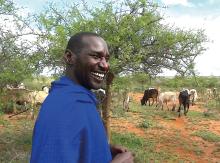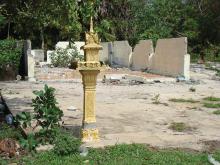Land Library
Welcome to the Land Portal Library. Explore our vast collection of open-access resources (over 74,000) including reports, journal articles, research papers, peer-reviewed publications, legal documents, videos and much more.
/ library resources
Showing items 1 through 9 of 29.The Kilimanjaro Initiative is a rural women’s mobilisation from across Africa towards an iconic moment at the foot of Mt Kilimanjaro in October 2016.
Following the end of apartheid, South Africa’s government set itself ambitious goals with a planned land reform. However, there have since been barely any changes in the country’s agricultural structure, and the positive impacts that were hoped for on rural livelihoods have hardly materialised.
The year 2016 marks 15 years since the new wave land reforms became operational in Tanzania. Despite its ambitious goals – encouraging land registration and titling, and empowering women and other vulnerable groups – the results are disillusioning.
The land reform process in Cambodia is full of examples of injustice and human rights violations. Promises to improve the situation of the landless and land-poor citizens have remained unfulfilled. Development co-operation efforts have not changed this either.
This report, which focuses on Kenya, constitutes one of four country-wide assessments produced under the overall project.
The Land Sector Non State Actors (LSNSA) is a network of civil society organizations working together to promote secure and equitable access to land and natural resource for all through advocacy, dialogue and capacity building.
The first set of the land laws were enacted in 2012 in line with the timelines outlined in the Constitution of Kenya 2010.
For a long time sub-Saharan Africa has been considered to have abundant and underutilized land than any other continent. On the contrary, recent studies show that many rural Africans live in increasingly densely populated areas where all arable land is allocated or under cultivation.








